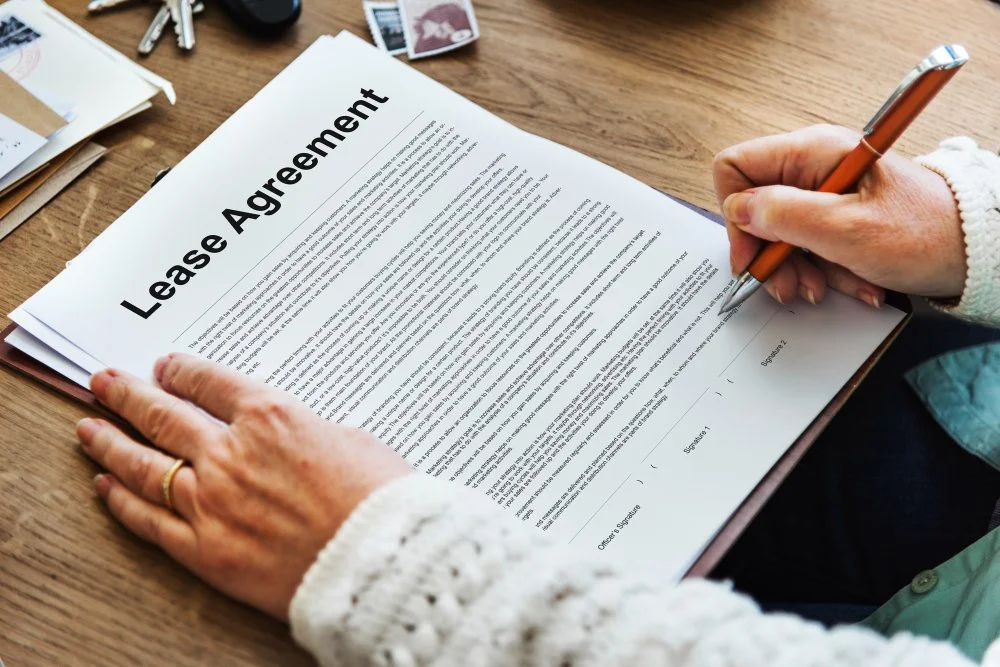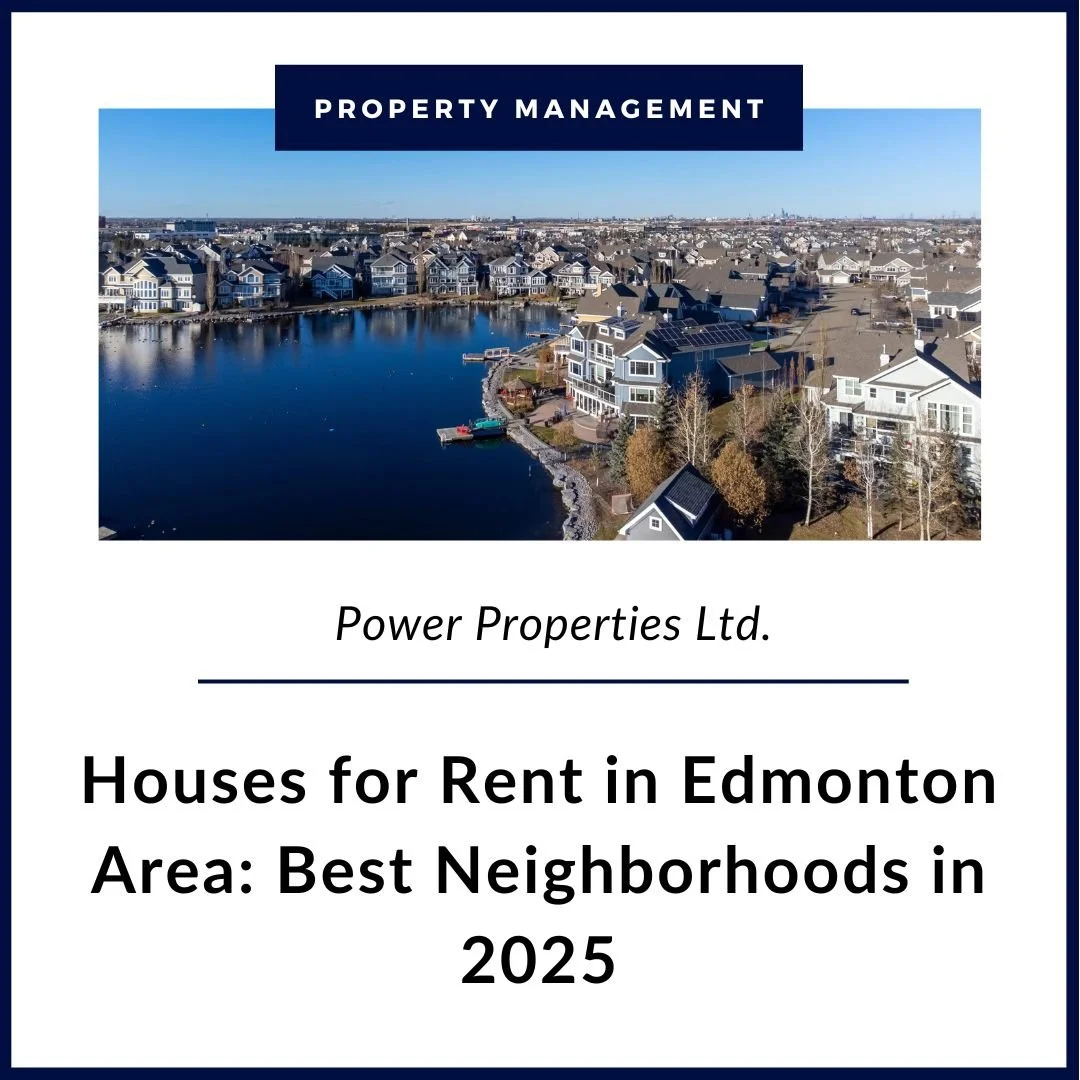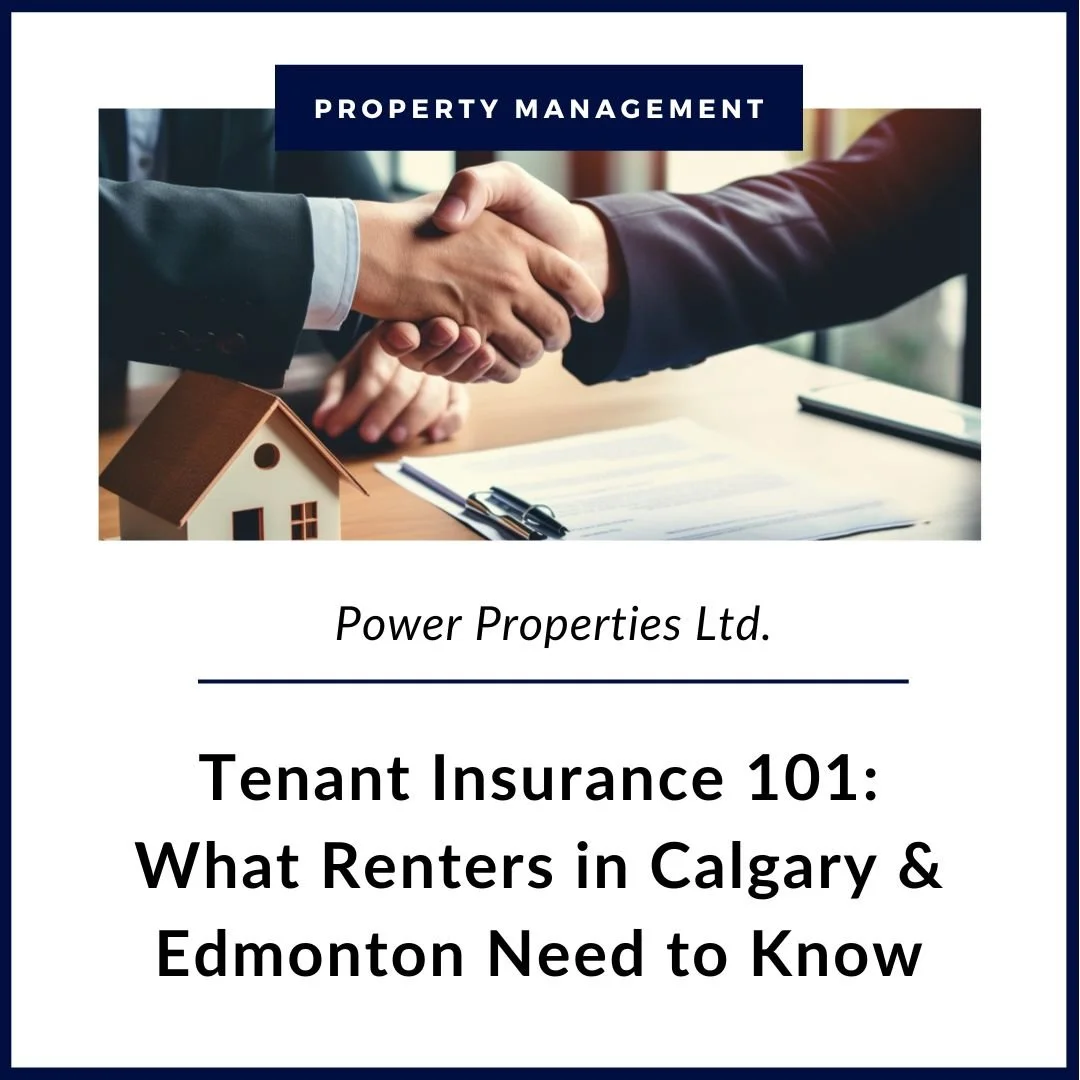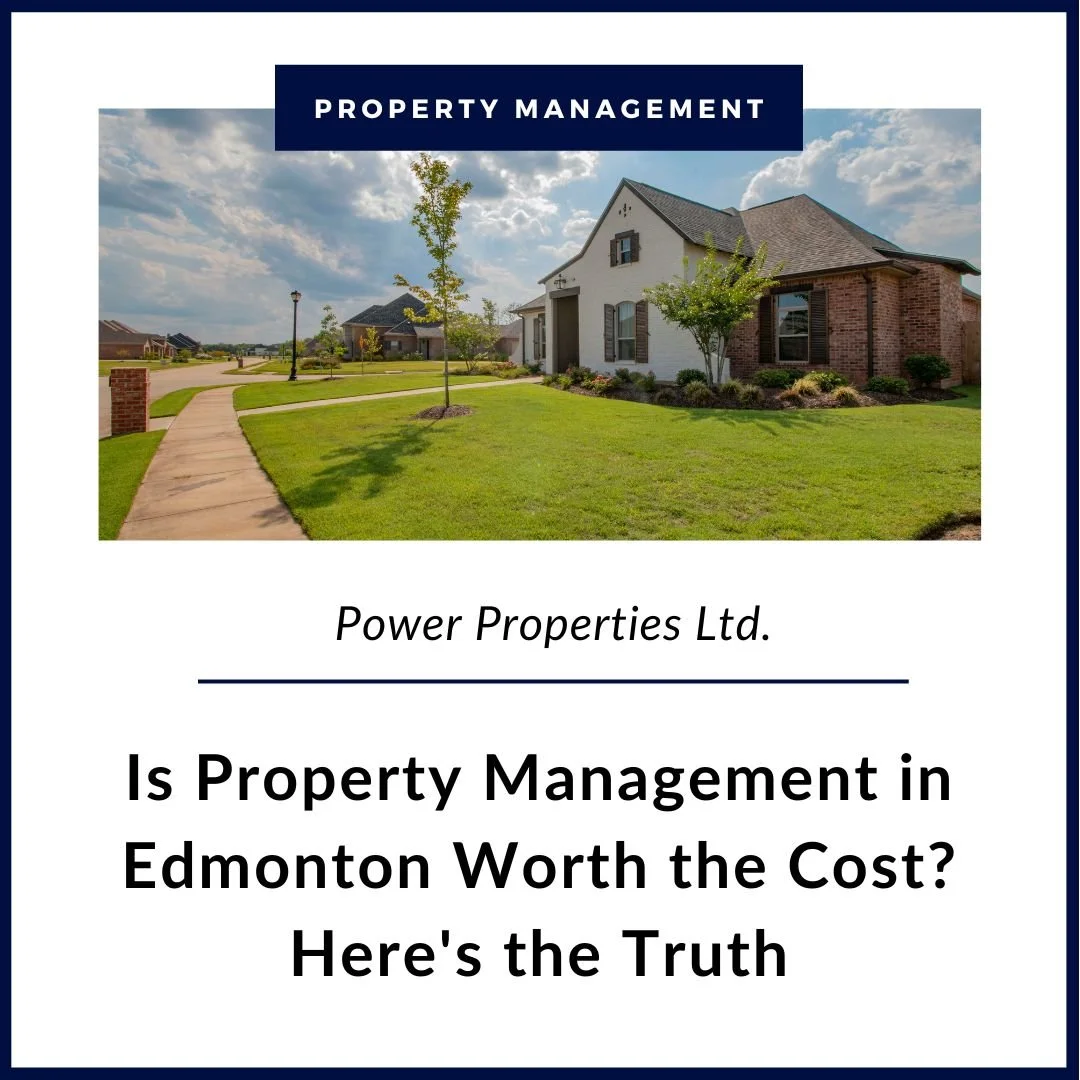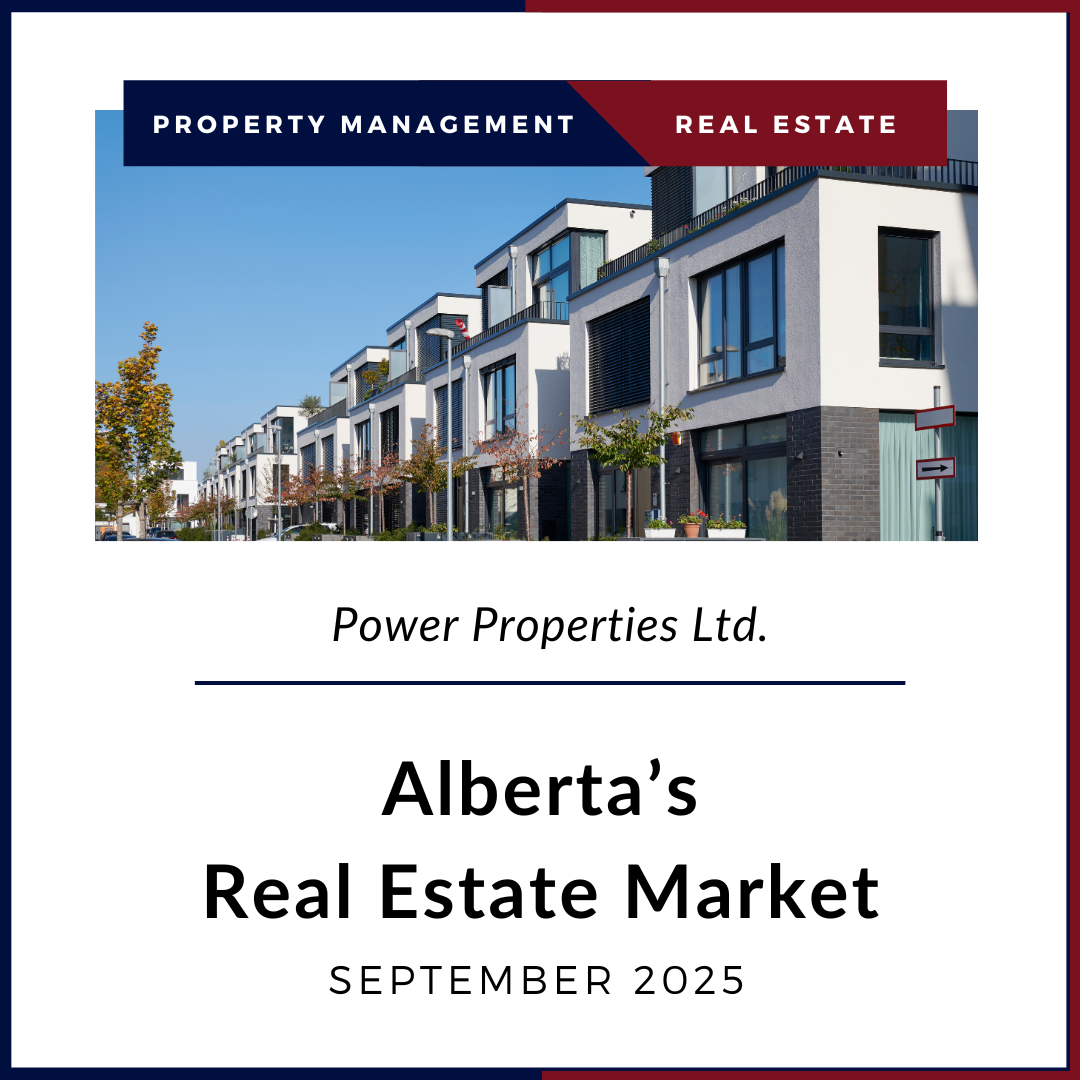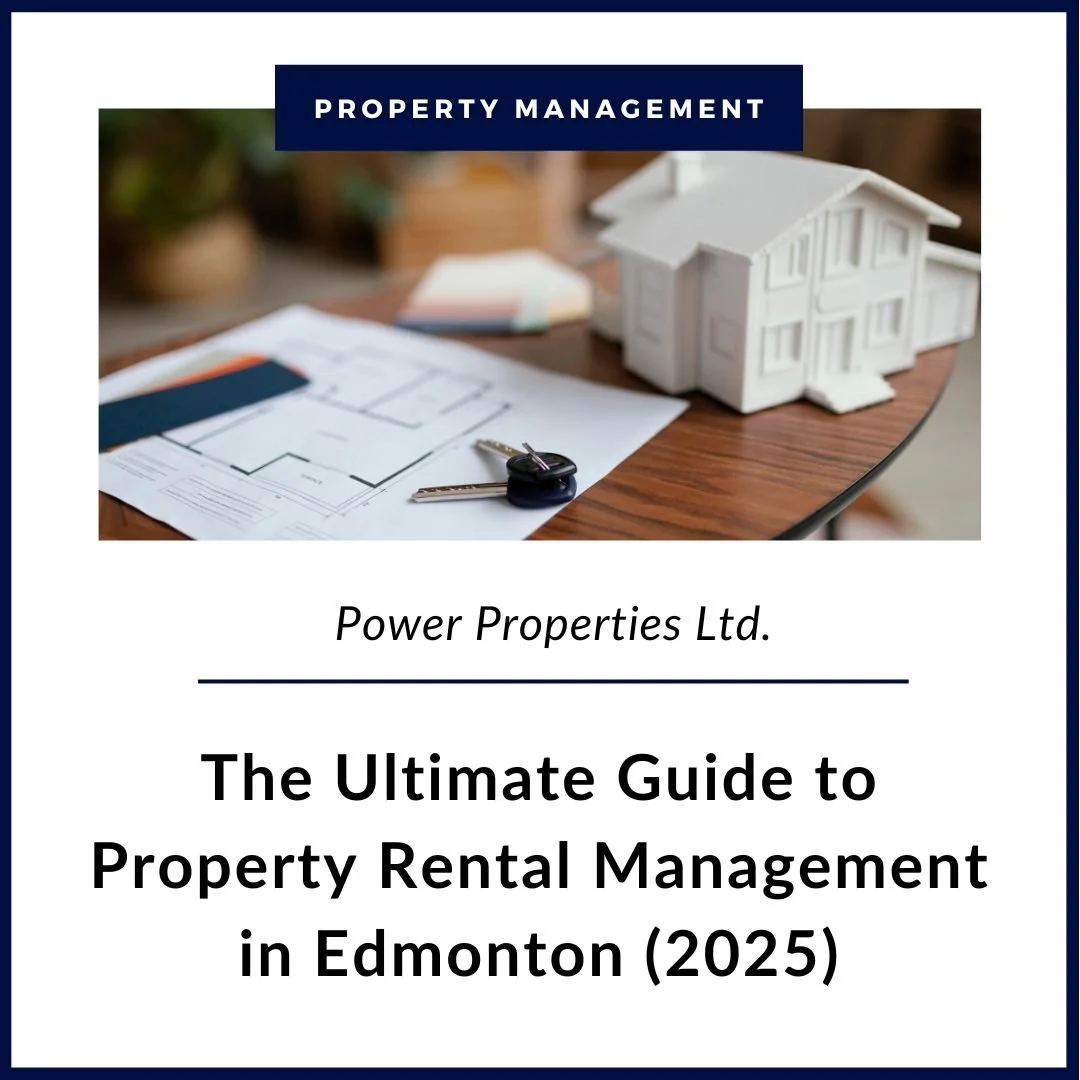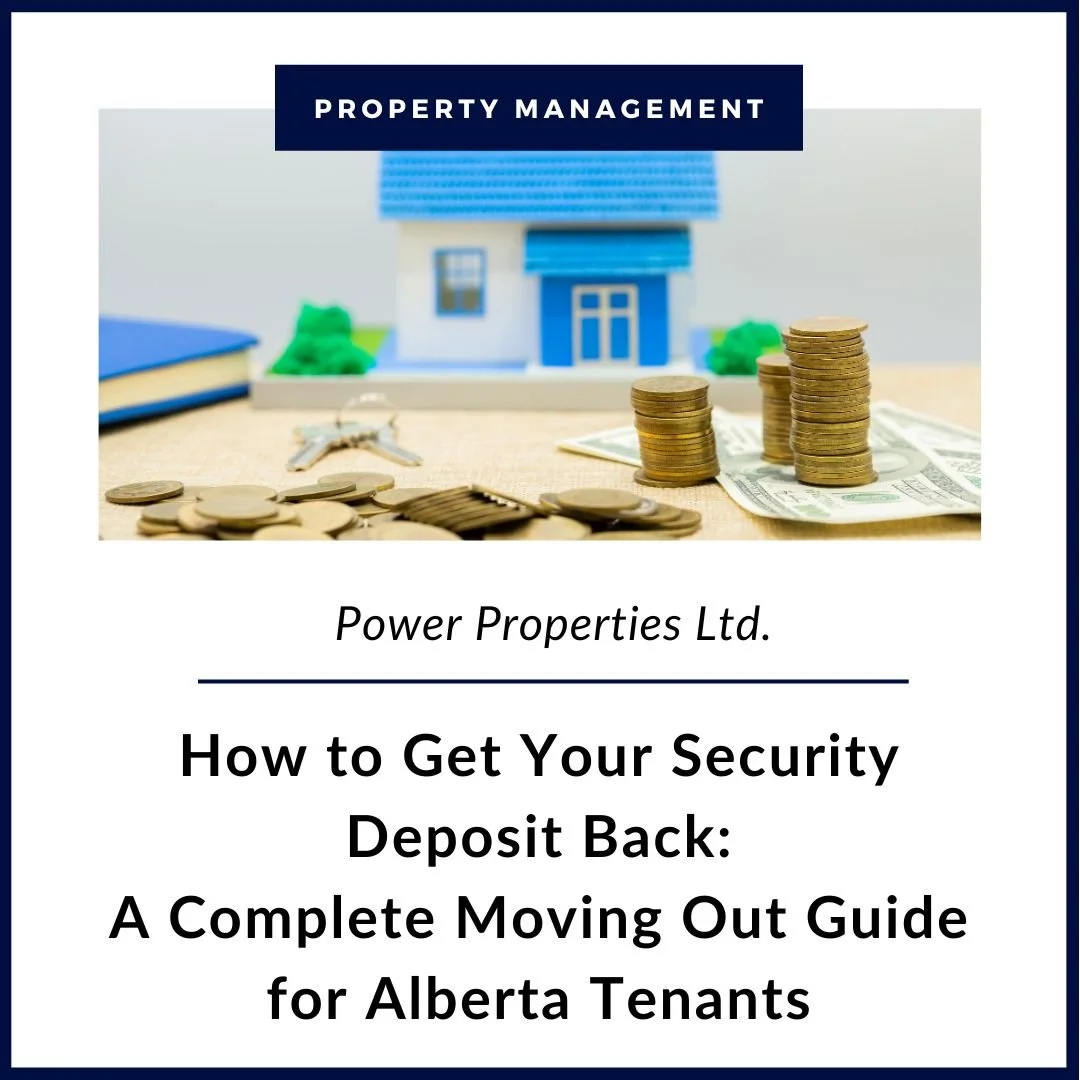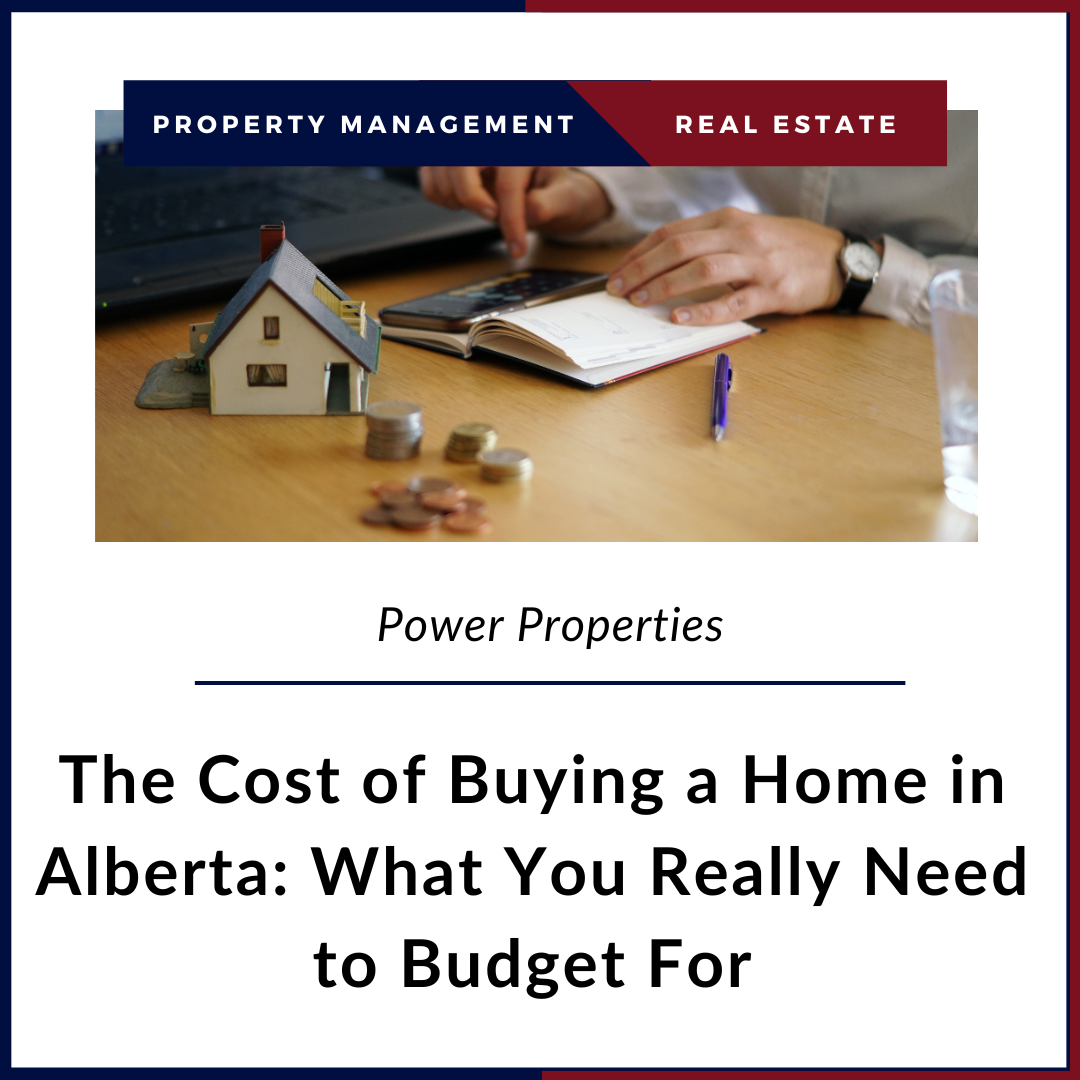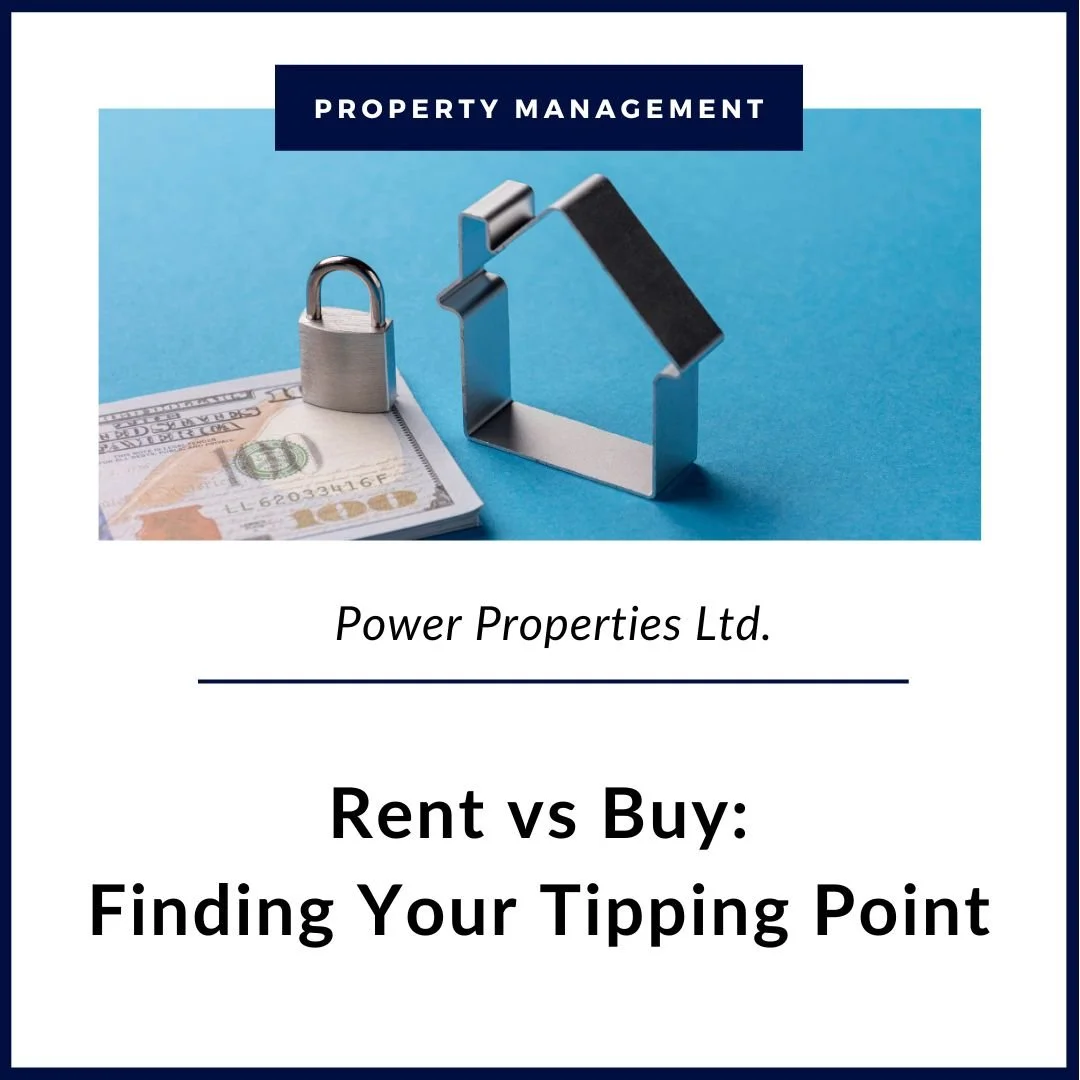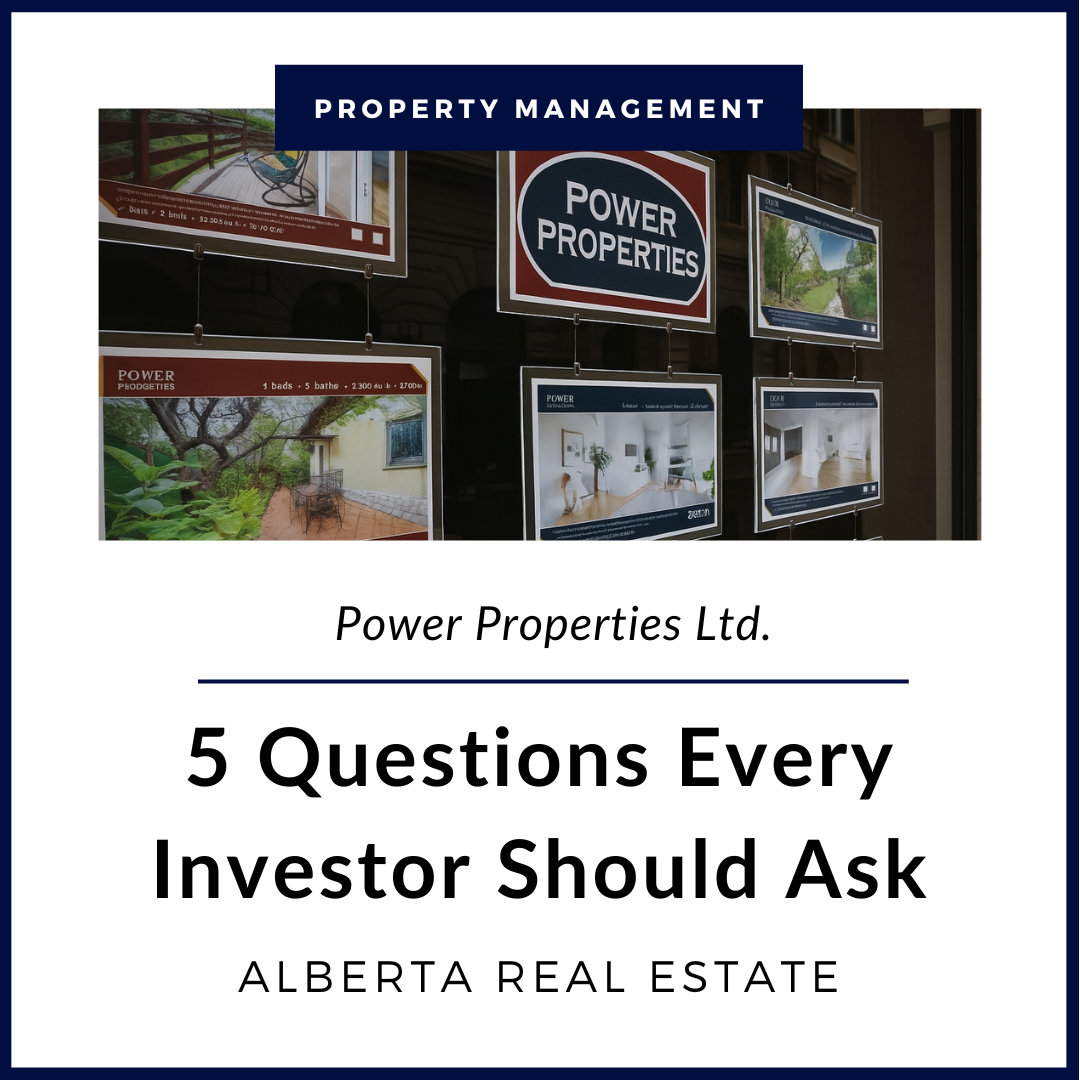10 Essential Elements Every Alberta Rental Lease Must Include
Written By Power Properties
Let's be honest here, nobody gets excited about reading lease agreements. But here's the thing, creating a solid rental lease isn't just about covering your legal bases (though that's pretty important too).
It's really about setting up a relationship that works for everyone involved. Think of it as laying the groundwork so you can sleep peacefully at night, knowing everyone's on the same page.
I've seen too many landlords and tenants get into heated disputes that could have been completely avoided with a well-written lease. Property managers across Alberta, from the bustling markets of Calgary to the growing rental scene in Edmonton, have learned this lesson the hard way. The good news? You don't have to.
A thoughtfully crafted lease agreement is like having a good insurance policy. You hope you'll never need to refer back to it, but when problems pop up (and they will), you'll be grateful it's there. It prevents those awkward "but I thought..." conversations and gives both parties a clear reference point when questions arise.
1. Complete Party Identification
Getting the Landlord Details Right
This might seem obvious, but you'd be surprised how many leases get this wrong. Your lease needs to clearly identify everyone on the landlord's side. That means your name, and your full contact information, including phone number and email address. If you're working with a property management company in Calgary or Edmonton, make sure it’s got the Property Manager’s contact information, as well as the 24/7 Emergency line.
Here's a pro tip from someone who's been there: if your contact information changes during the lease term, let your tenants know immediately. Nothing frustrates tenants more than trying to reach an unresponsive landlord when the water heater decides to quit on a Sunday morning.
Tenant Information That Actually Matters
Every single adult (18+) who will be calling your property home needs to be named on that lease. I'm talking full legal names, not just "John and his girlfriend Sarah." This creates legal accountability for everyone and ensures you know exactly who you're dealing with.
Include current contact information for all tenants, but designate one person as the primary contact. This saves everyone time when you need to communicate about maintenance issues or other property matters. Trust me, trying to coordinate with four different roommates about a simple repair can turn into a comedy of errors pretty quickly.
2. Property Description and Address That Leaves No Room for Confusion
You might think "123 Main Street, Unit 4" is enough detail, but let me tell you about the time a tenant assumed a storage locker came with their unit because it wasn't specifically excluded. Suddenly, a simple lease became a complicated discussion about storage rights.
Be incredibly specific about what's included in the rental, list parking spaces, storage lockers and major appliances. Are you leaving them a lawnmower to use? List it on the lease, or there’s a chance you won’t get it back when they move out. This prevents those uncomfortable conversations later when assumptions don't match reality.
3. Lease Terms and Duration (The Foundation of Everything)
Understanding Fixed-Term vs Periodic Tenancies
This is where many people get tripped up, and honestly, it's more important than most realize. A fixed-term lease has a specific end date - think of it like a contract that expires. A periodic tenancy, usually month-to-month, continues indefinitely until someone decides to end it.
Here's something that surprises many landlords: after a tenant moves in, you typically need to wait at least 12 months before raising the rent, regardless of your lease type. This rule protects tenants from frequent rent hikes and gives everyone stability to plan their budgets.
Include crystal-clear start and end dates if you're going with a fixed-term arrangement. And if your lease automatically renews (say, switching from a one-year fixed term to month-to-month), make sure that's explicitly stated. Nobody likes surprises when it comes to housing commitments.
4. Rent Amount and Payment Details (Money Matters)
Getting the Numbers Right
Write out the monthly rent amount in both numbers AND words. So instead of just "$1,200," write "$1,200 (one thousand two hundred dollars)." It might seem excessive, but this tiny detail can prevent disputes if there's ever confusion about the actual amount.
Specify exactly how rent should be paid. Are you set up for e-transfers? Do you prefer checks? Still accepting cash? (Though honestly, cash transactions can get messy for record-keeping). Include where payments should be sent and the exact due date each month.
Late Fees That Make Sense
Nobody plans to pay rent late, but life happens. Maybe their paycheck was delayed, or they forgot to set up that automatic transfer. Whatever the reason, your lease should outline what happens when rent is late.
Be reasonable with late fees - they should encourage on-time payment without being punitive. A $50 late fee on $800 rent feels fair; a $200 late fee feels like you're trying to profit from people's misfortune. Also, consider offering a short grace period (maybe 3-5 days) before late fees kick in. It shows good faith and acknowledges that sometimes timing just doesn't work out perfectly.
5. Security Deposits and Fees (Protecting Everyone's Interests)
Security deposits are probably one of the most contentious aspects of renting, but they don't have to be. The key is absolute transparency from day one. Clearly state how much deposit is required, when it needs to be paid (usually before move-in), and most importantly, what could result in deductions.
Be specific about deposit return conditions. Will you deduct for unpatched holes from a tv mount? What about carpet cleaning? Pet damage? The more detailed you are upfront, the fewer arguments you'll have when someone moves out.
For those handling property management in Edmonton and Calgary, remember that Alberta has specific deposit limitations. Generally, you can't ask for more than one month's rent as a security deposit, and there are strict rules about when and how it must be returned.
6. Maintenance and Repair Responsibilities (Who Does What?)
What's On the Landlord's Plate
This is where a lot of relationships go sideways if expectations aren't clear. Generally speaking, landlords handle major repairs, structural issues, heating and cooling systems, and plumbing problems. But "major" can be subjective, so be specific.
A tenancy agreement will contain all of the information necessary to facilitate the rental process, including these crucial maintenance details. Don't leave room for interpretation when you can be explicit instead.
Tenant Responsibilities That Keep Things Running Smoothly
Tenants typically handle day-to-day maintenance like changing light bulbs, keeping things clean, and reporting problems promptly. But here's where it gets interesting - what happens if they don't report a leaky faucet and it causes water damage? Your lease should address scenarios like this.
I always recommend including a clause about timely reporting of maintenance issues. It protects your property and shows tenants that their quick action is appreciated and necessary.
7. Utility and Service Arrangements (Avoiding Bill Shock)
Nothing ruins a good landlord-tenant relationship faster than surprise utility bills. Be extremely clear about what's included in rent and what tenants need to arrange themselves. This includes:
Electricity
Heat or Gas
Water and sewer
Garbage collection and recycling
Internet and cable
If utilities are not included with the rent, but they have to stay under the landlord’s name (think suited up/down property), make sure the utility amount the tenants are expected to pay is clear, as well as the payment timeline. Are they paying a lump sum fee on top of rent, like $250 a month? Or are they paying a percentage? In a suited property, the upstairs tenants might pay 60%, while the lower tenants pay 40%. Will they be paying at the end of the month, or mid-month when the bills come in.
Don’t leave any room for surprises.
8. Property Use and Occupancy Rules (Setting Boundaries)
Keeping Things Residential
Your property is someone's home, not their business headquarters. Include clear language about residential use only, but be reasonable. Can they run a small online business from their laptop? Probably fine. Can they turn the living room into a massage therapy clinic with clients coming and going? That's crossing into commercial use.
Address subletting clearly too. Some landlords are okay with it if tenants get approval first; others prefer to prohibit it entirely. There's no right or wrong answer, but whatever your preference, make it clear.
House Rules That Actually Make Sense
Nobody wants to live next to the neighbor who thinks 2 AM is the perfect time for karaoke practice. Include reasonable noise restrictions, pet policies (if you allow pets), and smoking rules. If you're managing a multi-unit building, these rules become even more important for everyone's peace of mind.
9. Termination and Notice Requirements (Planning for Endings)
When Tenants Want to Leave
Life changes, and sometimes people need to move. Your lease should outline exactly how much notice tenants need to give and what format that notice should take. If a tenant is on a periodic (month-to-month) lease, they are required to give their landlord one full tenancy month of written notice, dated and signed.
A fixed-term lease is a bit trickier. Tenants are committing to a set end date and remain responsible for rent until then. Under Alberta’s Residential Tenancies Act, tenants have the right to sublet or assign their lease, but only with the landlord’s written consent, which cannot be unreasonably withheld.
In a sublet, the subtenant typically pays rent to the original tenant, and the tenant continues to pay the landlord. Importantly, the original tenant remains responsible under the lease. If the subtenant defaults or causes damage, it’s the tenant who must resolve the issue and “chase down” any unpaid rent, since the landlord will still hold the original tenant liable.
If you prefer not to rely on subletting, and would rather stay directly involved in approving who lives in your property, you can include a lease cancellation clause. While the Residential Tenancies Act doesn’t specifically address cancellation fees, landlords and tenants can agree on one in the lease.
The key is that the fee must be clear, fair, and reflect your real costs (such as advertising, showings, and potential vacancy). This gives tenants a straightforward way out of their lease if life changes, while allowing you to maintain control over screening the next resident.
When Landlords Need to End a Tenancy
Sometimes landlords need to end a tenancy, such as when they plan to move in, complete major renovations, or sell the property. For a periodic (month-to-month) tenancy, landlords must give tenants three full tenancy months of written notice.
The law only allows this in specific situations, such as if the landlord or their close family member intends to live in the property, if the property has been sold and the purchaser or their family intends to live there, if the building will be demolished, if major renovations require the unit to be vacant, or if the property will be converted to a different use.
A fixed-term lease is different: it continues until the agreed end date. Even if the property is sold during the lease, the new owner must honour all terms until the lease expires. The only way it can end earlier is if both the landlord and tenant agree, or if the tenant breaches the lease in a way that legally allows termination.
10. Legal Compliance and Dispute Resolution (Covering Your Bases)
Staying on the Right Side of the Law
Include a clause stating that your lease is subject to Alberta’s Residential Tenancies Act. This is important because rental laws change, and you want to ensure your lease remains compliant even if new regulations come into effect.
This clause also protects tenants by ensuring that their rights under provincial law are preserved, even if the lease doesn't specifically mention every protection they're entitled to.
When Things Go Wrong (And Sometimes They Do)
Despite everyone's best intentions, disputes happen. Maybe there's disagreement about whether something counts as normal wear and tear, or confusion about notice periods. Your lease should outline steps for resolving these issues.
Start with direct communication (most problems can be solved with a simple conversation), then move to mediation if needed, and finally to formal legal processes if all else fails. Having this roadmap in place makes resolution much smoother for everyone involved.
Wrapping It All Up
Look, creating a comprehensive lease agreement might not be the most exciting part of being a landlord, but it's definitely one of the most important. Think of it as an investment in peace of mind for everyone involved.
A well-crafted lease prevents those 10 PM phone calls about who's supposed to fix the garbage disposal, eliminates confusion about when rent is due, and gives everyone a clear reference point when questions come up. It's not about being difficult or overly legal - it's about being fair and transparent.
Your future self will thank you for taking the time to get this right from the beginning. Trust me on this one.
About Power Properties Ltd.
Founded in 1980, Power Properties has been providing hassle-free property management services to property owners, property investors and non-residents with homes in Calgary, Edmonton, Lethbridge and Medicine Hat for over 45 years. Our full-service property management includes everything from move in to move out, so you don’t have to worry about the day-to-day operations of your rental property. With a team of licensed professionals, years of experience, and award-winning service, you can rest assured that your property is in good hands.

